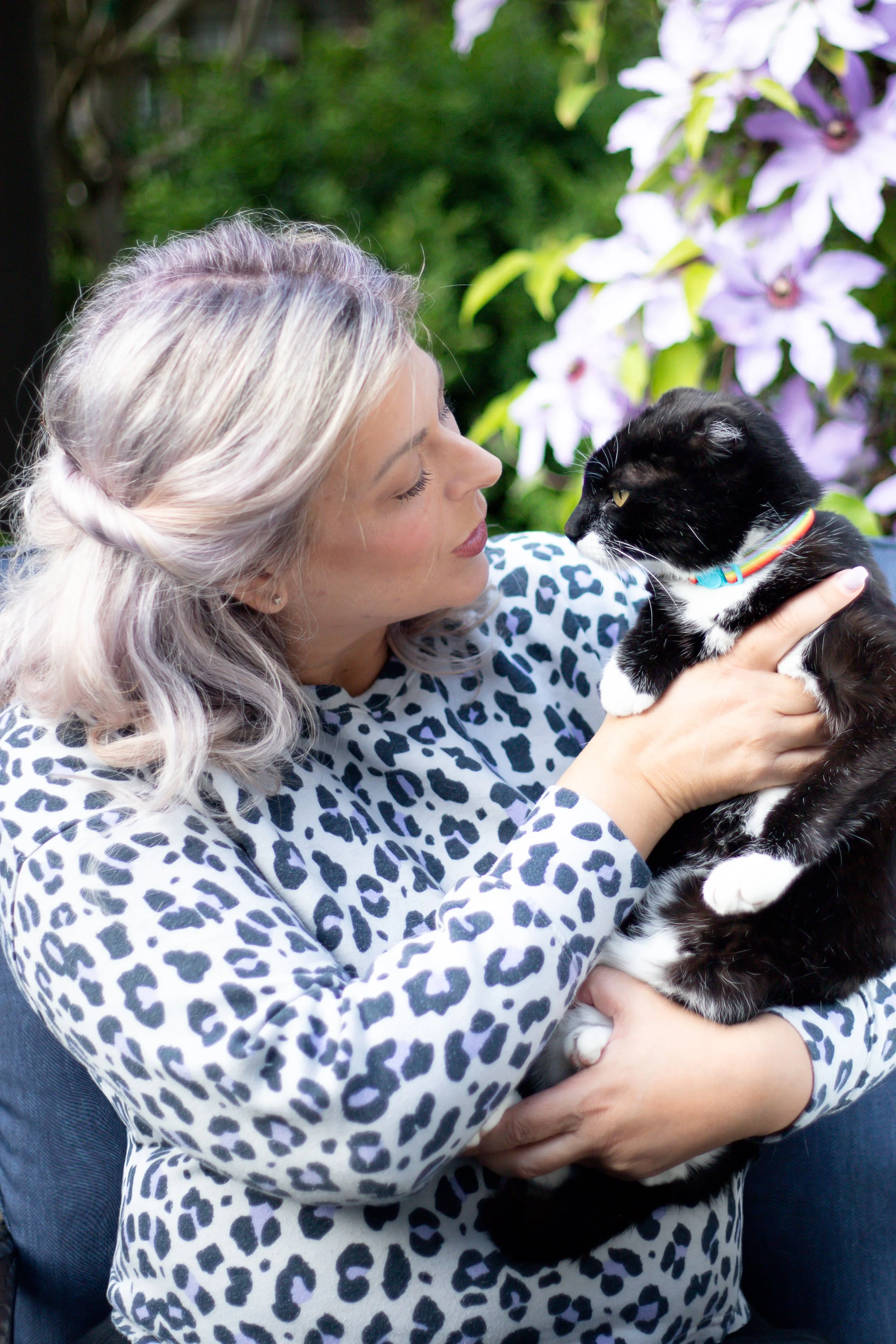Christine Krauss
A NOTE FROM CHRISTINE:
I am a full-time essential services worker and mom of two primary school-aged children. My kids enjoy choosing books from the school library and I'm always genuinely impressed with the messages of acceptance and kindness in the stories they select for us to read together. During the pandemic, we had to get creative to keep our home an exciting and positive space that we all wanted to spend a lot of time at! Our entire family loves animals, so we decided to foster a litter of kittens over the Christmas Holidays. They brought so much joy into our lives, that we planned to continue to foster animals as much as possible! Then we saw Teddy. Teddy just belonged with our family and we knew it the moment we met him. Since that day, he has made our family feel complete. His uniqueness and character have inspired a series of stories that we hope to share with other avid child readers that love animals!
Marina Raydun: First things first-I cannot wait to read Teddy Loses His Ears with my kids. What moved you to write this story in particular?
Christine Krauss: Aww, Thank you. I decided to write Teddy Loses His Ears because it is a true story about my foster cat, who lost his ears to frostbite. I thought it was an important story to tell that can educate about pet care needs and serve as a lesson about making assumptions based solely on appearances. In this case, judging a cat by his ears. Teddy is a loveable character and I believe his story has many layers that children are able to connect with and relate to about self-esteem, disability awareness and being kind.
MR: Our world sure needs more children’s literature about kindness. What books served as inspiration for you?
CK: My children bring home so many books from the school library, it’s hard to pick just one. But there is a book written by Michael Hall titled “Red” about a mistakenly labelled crayon, that I found particularly inspirational and I loved how it simplified some pretty heavy subject matter while the message about being true to yourself is very clear to audiences of all ages.
MR: If you had to do something differently as a child or a teenager to become a better writer as an adult, what would you do?
CK: I wouldn't do anything differently! I’ve always had a natural story telling ability when I write about real life experiences or topics that I am passionate about. I shine when I write speeches for events with a theme I can somehow make relatable, or describing people that I an honouring. Travel blogging my adventures or becoming inspired from a moment, I try to bring my audience along with me on the emotional journey by being raw and honest about the events I am describing.
MR: What is your favorite genre to read?
CK: My favourite genre to read are crime novels. I love stories that take you on a clue solving adventure, especially when the protagonist view is law enforcement. James Patterson books are a favourite of mine.
MR: What are you currently reading?
CK: I belong to a Book Club that consists of eight fabulous ladies. We take turns making recommendations every month. We just finished my pick “Her One Mistake” by Heidi Perks and it was excellent. I’d recommend it to any mom. I’m currently reading “The Night She Disappeared” by Lisa Jewel. I’m really enjoying it so far, and we all agree, this authors books never disappoint!
MR: How did publishing your first book change your writing process?
CK: I don’t think my writing process has changed, but my confidence has clicked on and I believe in my own ability to story tell cohesively and see opportunity and become inspired from the simple every day things.
MR: Is there one topic you would never write about as an author? Why?
CK: I really don’t feel anything is off the table for discussion. Books are knowledge. Therefore, the more we expand beyond our topic limitations, only then are we able to learn and grow. Part of the reason I wrote Teddy Loses His Ears is because I wanted to show children that everybody has a perspective based on their experiences. It’s OK to ask uncomfortable questions to learn about differences and become accepting through understanding.
To read Teddy Loses His Ears, please visit Christine’s Amazon Page.


